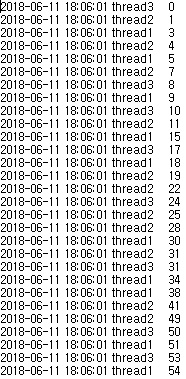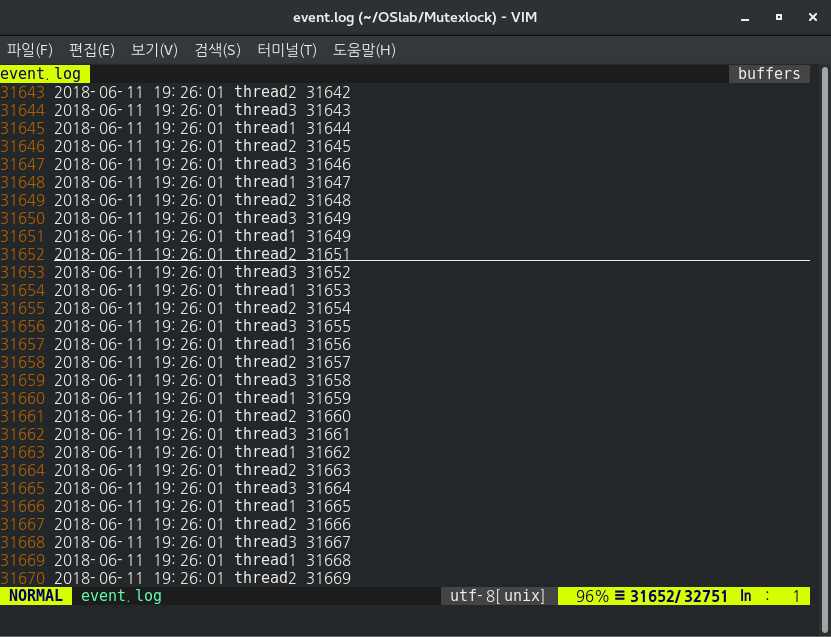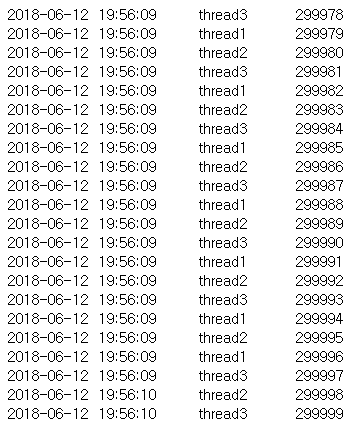Table of Contents
race condition은 두 개 이상의 프로세스나 스레드가 하나의 데이터를 공유할 때 데이터가 동기화되지 않는 상황을 말한다. (공룡책으로 정리하는 운영체제 Ch.6에 정리했다.) 그리고 코드에서 이러한 문제가 발생할 수 있는 부분을 critical section이라고 하며, 이 문제를 해결하기 위해 한 번에 하나의 스레드만 critical section에 진입할 수 있도록 제어하는 기법을 mutex lock이라고 한다.
CentOS에서 3개의 스레드를 운영하는 프로그램을 짜고, race condition을 발생시킨 뒤 mutex lock을 통해 해결해보려 한다. 먼저 3개의 스레드를 만들어보자.
#include <stdio.h>
#include <pthread.h>
#include <time.h>
void* performThread(void* data);
int count = 0;
int main(int argc, char* argv[]) {
pthread_t threads[3];
char threadNames[3][128] = {
{"thread1"},
{"thread2"},
{"thread3"}
};
pthread_create(&threads[0], NULL, performThread, (void*)threadNames[0]);
pthread_create(&threads[1], NULL, performThread, (void*)threadNames[1]);
pthread_create(&threads[2], NULL, performThread, (void*)threadNames[2]);
printf("%d\n", count);
return 0;
}
void* performThread(void* data) {
count++;
}3개의 스레드가 차례대로 count를 증가시켰기 때문에 예상대로 결과는 3이 나온다. 이걸 조금 바꿔서 count를 10만번 증가시키고, 모든 내용을 로그에 남기도록 하려한다. performThread만 수정해주면 된다.
void* performThread(void* data) {
time_t currentTime;
struct tm* timeInfo;
char currentTimeString[128];
char* threadName = (char*)data;
FILE* file;
int i = 0;
file = fopen("event.log", "a");
for (i = 0; i < 100000; i++) {
time(¤tTime);
timeInfo = localtime(¤tTime);
strftime(currentTimeString, 128, "%Y-%m-%d %H:%M:%S", timeInfo);
fprintf(file, "%s\t%s\t%d\n", currentTimeString, threadName, count);
count++;
}
fclose(file);
}반복문을 10만번 돌면서 시간, 스레드 이름, count 순서로 로그를 한 줄씩 남기도록 수정하고 실행한다.

엄청난 빈도로 race condition이 발생했으며, 최종 결과가 정확히 300000으로 떨어지지 않았다. 이에 앞서 VM에서 테스트하면서 race condition이 일어나지 않아 삽질을 많이 했는데, VM을 싱글 코어로 설정해서 그런 것이었다.

위와 같이 싱글 코어 환경에서는 한 번에 하나의 스레드만 실행되기 때문에 race condition이 발생하지 않는다.
다시 멀티 코어 환경으로 돌아와서, race condition을 mutex lock으로 해결해본다.
#include <stdio.h>
#include <pthread.h>
#include <time.h>
void* performThread(void* data);
pthread_mutex_t mutex = PTHREAD_MUTEX_INITIALIZER;
int counter = 0;
FILE* file;
int main(int argc, char* argv[]) {
pthread_t threads[3];
char threadNames[3][128] = {
{"thread1"},
{"thread2"},
{"thread3"}
};
int i = 0;
file = fopen("event.log", "a");
for (i = 0; i < 100000; i++) {
pthread_create(&threads[0], NULL, performThread, (void*)threadNames[0]);
pthread_create(&threads[1], NULL, performThread, (void*)threadNames[1]);
pthread_create(&threads[2], NULL, performThread, (void*)threadNames[2]);
}
printf("Done: %d\n", counter);
fclose(file);
return 0;
}
void* performThread(void* data) {
pthread_mutex_lock(&mutex);
time_t currentTime;
struct tm* timeInfo;
char currentTimeString[128];
char* threadName = (char*)data;
time(¤tTime);
timeInfo = localtime(¤tTime);
strftime(currentTimeString, 128, "%Y-%m-%d %H:%M:%S", timeInfo);
fprintf(file, "%s\t%s\t%d\n", currentTimeString, threadName, counter);
counter++;
pthread_mutex_unlock(&mutex);
}먼저 mutex 변수를 만들었다. 그리고 critical section은 performThread 함수에서 로그를 남기고 counter를 증가시키는 부분이므로, 스레드가 performThread에 진입할 때 lock해 다른 스레드가 진입할 수 없도록 만든 후 나올 때는 unlock해주도록 했다.

최종 값은 299999였다. counter가 0에서 출발하니까 최종 값이 299999이어야 각 스레드가 100000번씩 수행되었다는 의미가 된다. 잘 동작했다.